Sodium Bicarbonate vs Calcium Carbonate
Introduction
Sodium bicarbonate and calcium carbonate belong to the class of drugs known as antacids. Both drugs are often classified as the core components of minerals and electrolytes. Sodium bicarbonate is also known as a urinary pH modifier due to its properties. Doctors prescribe it for diabetic ketoacidosis, alkylating agent cystitis, asystole, indigestion, and urinary alkalinization. Calcium carbonate effectively treats GERD, erosive esophagitis, stomach ulcer, hypocalcemia, duodenal ulcer, and indigestion [1]. Both drugs are readily available in drug stores for prescribed and OTC purchases.
About Sodium Bicarbonate and Calcium Carbonate
What is Sodium Bicarbonate?
Sodium bicarbonate is an effective antacid that neutralizes stomach acid. It is prescribed to treat GERD, heartburn, and indigestion in most cases. It is available under different brand names for OTC and prescribed use. Sodium bicarbonate is available in different forms. Doctors may prescribe the patients with the appropriate form based on their condition. You can find it in the following forms. [2]
- Compounding Powder
- Intravenous Solution
- Oral Tablet
What conditions is Sodium Bicarbonate approved to treat?
Sodium bicarbonate is effective for treating acid-related stomach discomfort and diseases. It neutralizes the acid content in the stomach to relieve heartburn and indigestion. The drug is approved to treat the following conditions.
- Diabetic Ketoacidosis
- Alkylating Agent Cystitis
- Asystole
- Hyperkalemia
- Hyperuricemia
- Indigestion
- Metabolic Acidosis
- Urinary Alkalinization
How does Sodium Bicarbonate work for heartburn?
Sodium bicarbonate (baking soda) acts as a neutralizing agent in the stomach to relieve the symptoms of acid reflux and its induced conditions, including heartburn, indigestion, and esophageal discomfort. When taken in prescribed doses, sodium bicarbonate mimics the effects of sodium bicarbonate produced by the pancreas (naturally). This activity neutralizes acid in the stomach. Please note that the relief may be temporary. [3]
What is Calcium Carbonate?
Calcium carbonate is an essential mineral for the human body based on several factors. It contains calcium, which is the core component of healthy bones. The primary goal of calcium carbonate is to prevent calcium deficiency [4]. However, it is effective to treat GERD, heartburn, and indigestion when taken in prescribed doses. Calcium carbonate is available in different forms. You can find it in drug stores as:
- Compounding Powder
- Oral Suspension
- Oral Tablet
- Oral Tablet (Chewable)
What conditions is Calcium Carbonate approved to treat?
Calcium carbonate is a multipurpose drug with effective results in most patients. Doctors prescribe it to restore calcium deficiency and stabilize the acidity in the stomach. The drug is approved to treat the following conditions.
- GERD
- Erosive Esophagitis
- Hypocalcemia
- Stomach Ulcer
- Duodenal Ulcer
- Osteoporosis
- Osteopenia
- Indigestion
How does Calcium Carbonate work for heartburn?
Calcium carbonate is a basic inorganic salt that neutralizes hydrochloric acid present in gastric secretions (in the stomach) to relieve heartburn. It also increases the pH and stops the action of pepsin in the stomach. Neutralization of HCL leads to the formation of calcium chloride, carbon dioxide, and water. Moreover, about 90% of calcium chloride converts to insoluble calcium salts. [5]
Effectiveness
How effective are Sodium Bicarbonate and Calcium Carbonate for treating heartburn?
Sodium bicarbonate and calcium carbonate are antacids and minerals with several functions in the body. If we speak about their effectiveness in treating heartburn and acid-related problems, both drugs are effective when prescribed. However, some patients may notice minimal effects due to their bodies' natural responses to the drugs.
A study conducted to determine the efficacy of sodium bicarbonate in treating gastroesophageal reflux disease (GERD) highlighted that the mineral was found to have a more sustained response and total relief in patients compared to omeprazole [6]. A different study conducted to evaluate the toxicity and effects of baking soda in treating stomachs highlighted that sodium bicarbonate is effective when used as an antacid. However, excessive use may impose a risk to the heart. [7]
Another study focused on the effectiveness of calcium carbonate antacids in altering esophageal motility in heartburn patients. The study's findings showed that calcium carbonate antacids were partially responsible for reducing heartburn by acid clearance [8]. Moreover, a study conducted to analyze the onset of the acid-neutralizing action of a calcium/magnesium carbonate antacid revealed that the (used) antacid had a high efficacy and fast onset in neutralizing the acid action in the stomach model. [9]
Dosage information
How is Sodium Bicarbonate administered for heartburn?
Sodium Bicarbonate dosage information
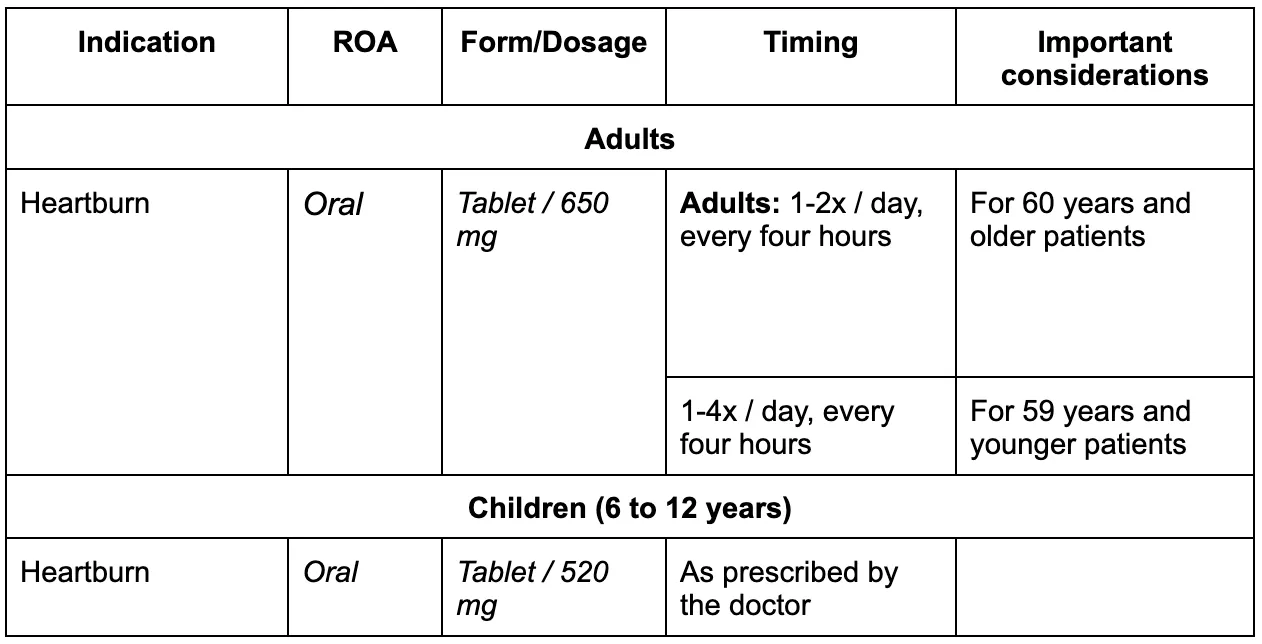
How is Calcium Carbonate administered for heartburn?
Calcium Carbonate dosage information
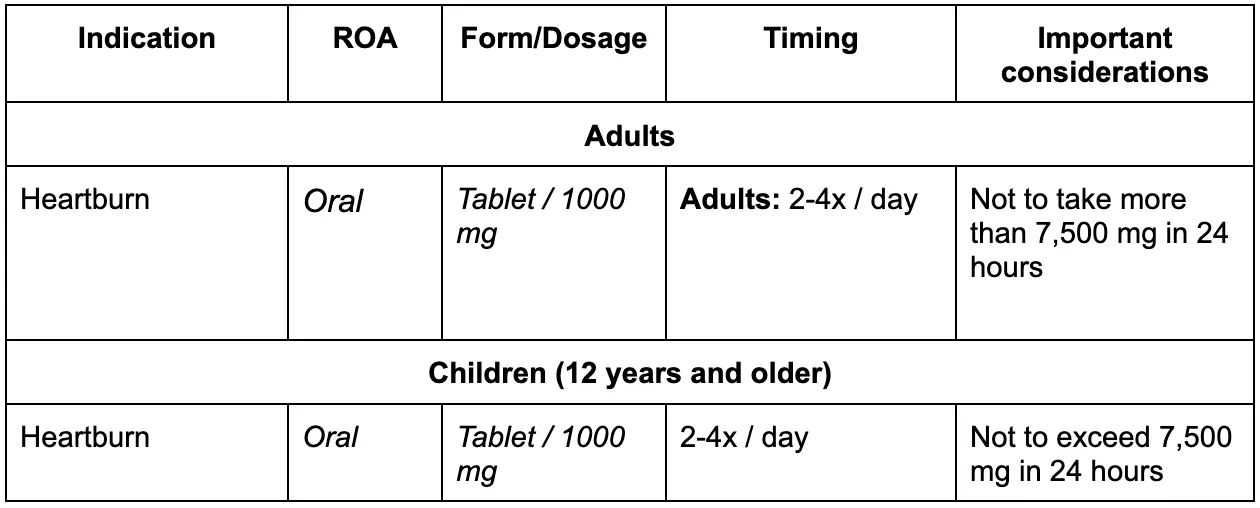
Side Effects
What are the most common side effects of Sodium Bicarbonate?
Sodium bicarbonate consumption may expose patients to the following common side effects. [10]
- Headache
- Mood Changes
- Nausea
- Restlessness
- Unpleasant Taste
- Weakness
- Frequent Urge to Urinate
Please note that these side effects are not all the possible effects patients may face when on the sodium bicarbonate treatment. If you notice other changes in your health, you may address the concerns to your doctor for an appropriate solution.
Are there any potentially serious side effects of Sodium Bicarbonate?
In certain patients, sodium bicarbonate may cause serious side effects. If you notice any of the following symptoms, you may reach out to your doctor at the earliest for immediate attention.
- Loss of Appetite
- Mental Changes
- Muscle Pain or Twitching
- Vomiting
- Slow Breathing
- Swollen Feet or Lower Legs
- Unusual Tiredness
- Stomach Cramps
- Increased Thirst
What are the most common side effects of Calcium Carbonate?
Calcium carbonate users may notice the following common side effects. [11]
- Constipation
- Upset Stomach
- Loss of Appetite
- Vomiting
- Stomach Pain
Please note that these are not all the possible side effects of using calcium carbonate supplements for heartburn. If you notice any changes to your health after starting the treatment, you may keep your doctor in the loop to ensure recovery.
Are there any potentially serious side effects of Calcium Carbonate?
Taking calcium carbonate as prescribed may cause serious reactions in certain patients. Patients are advised to contact their doctor immediately if they notice the following conditions.
- Allergic Reaction (rash, hives, itching, peeling skin, etc.)
- High Calcium Level Signs (weakness, confusion, tiredness, headaches, bone pain, etc.)
- Mood Disturbances
Contraindications and Interactions
Warnings and general precautions for Sodium Bicarbonate and Calcium Carbonate
While both mineral compounds are effective for treating various conditions, they have a few warnings. Sodium bicarbonate may cause sodium loading effects (edema and weight gain) in pregnant women, as highlighted by some experts. It may also elevate maternal arterial pH, pC02, and base excess in pregnant women. Although no effects have been recorded in fetuses and newborn babies, sodium bicarbonate should only be taken if the benefit outweighs the risk. [12]
If we speak about calcium carbonate, no practical evidence speaks against the use of the mineral compound during pregnancy. Patients with permanent hypercalcemia have reported adversaries on the fetus. Overall, pregnant women are unlikely to develop malformation risk. [13]
Contraindications and important interactions for Sodium Bicarbonate and Calcium Carbonate
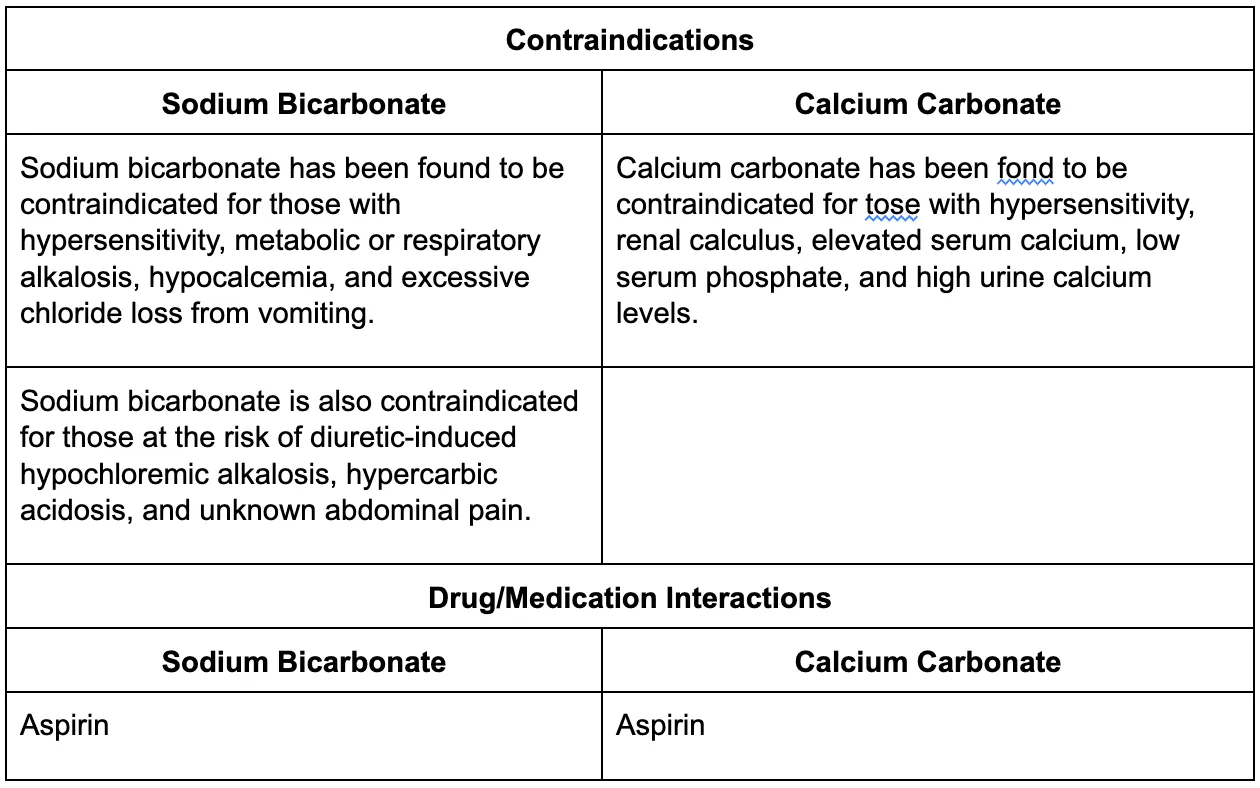
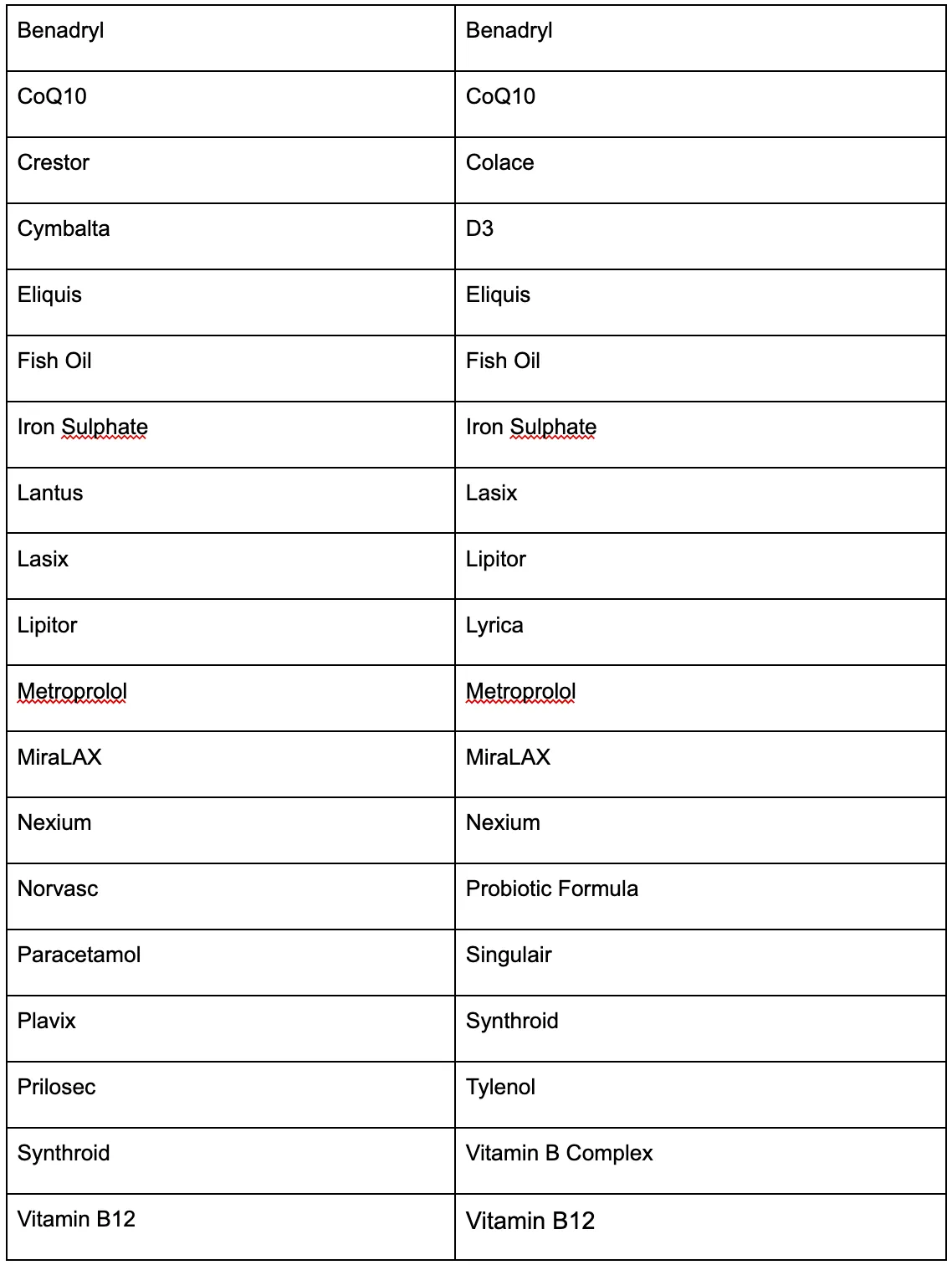
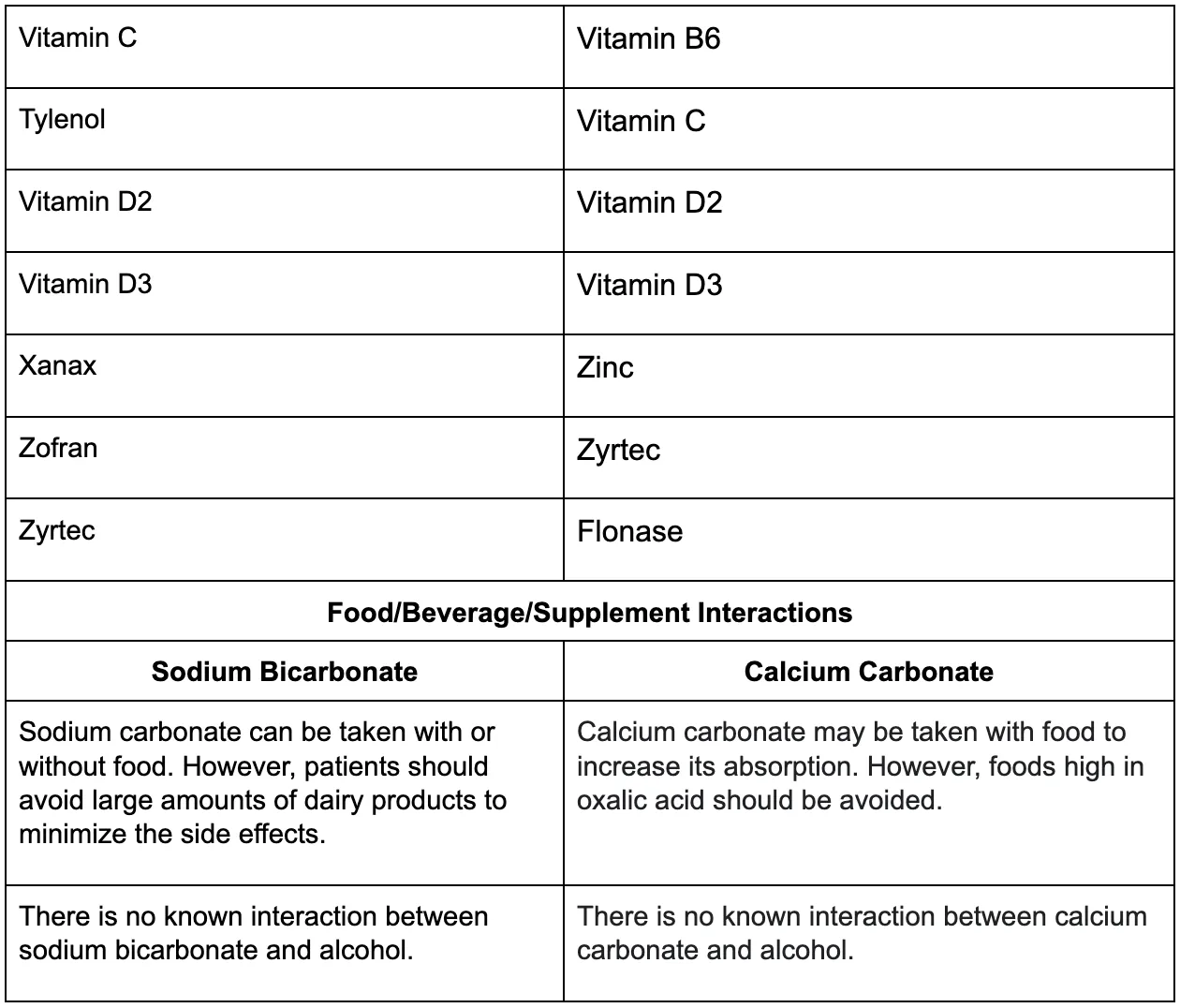
Cost Comparison
How much do Sodium Bicarbonate and Calcium Carbonate cost?
Sodium bicarbonate and calcium carbonate are available under different brand names in the market. A single sodium bicarbonate tablet (650 mg) may cost you $0.16, making up about $9.81 for 60 tablets. On the other hand, a 648 mg tablet of calcium carbonate may cost you $0.07, making up $11.91 for 180 tablets. If we compare the costs, both formulations are cost effective for prescribed use.
The average cost per prescription of sodium bicarbonate may be around $10.84, making it $0.31 per day of therapy. On the other hand, the average cost per prescription of calcium carbonate may be around $12.44, making it $0.31 per day of therapy.
Popularity of Sodium Bicarbonate and Calcium Carbonate
If we speak about the popularity of the two mineral compounds, sodium salts hold the 274th rank among the top drugs in the U.S. Calcium salts rank on 204th spot on the list of the top drugs. Both drugs are prescribed to thousands of patients each year based on their health conditions.
Conclusion
Takeaway
Sodium bicarbonate and calcium carbonate are effective antacids and minerals for treating numerous conditions like GERD, heartburn, and other stomach related problems. Both salts are essential for the human body to perform organ and bone functions properly. The effectiveness of both drugs vary based on the condition they are used for.
Both sodium bicarbonate and calcium carbonate are cost-efficient and readily available on drug stores in different forms for prescribed and OTC use.